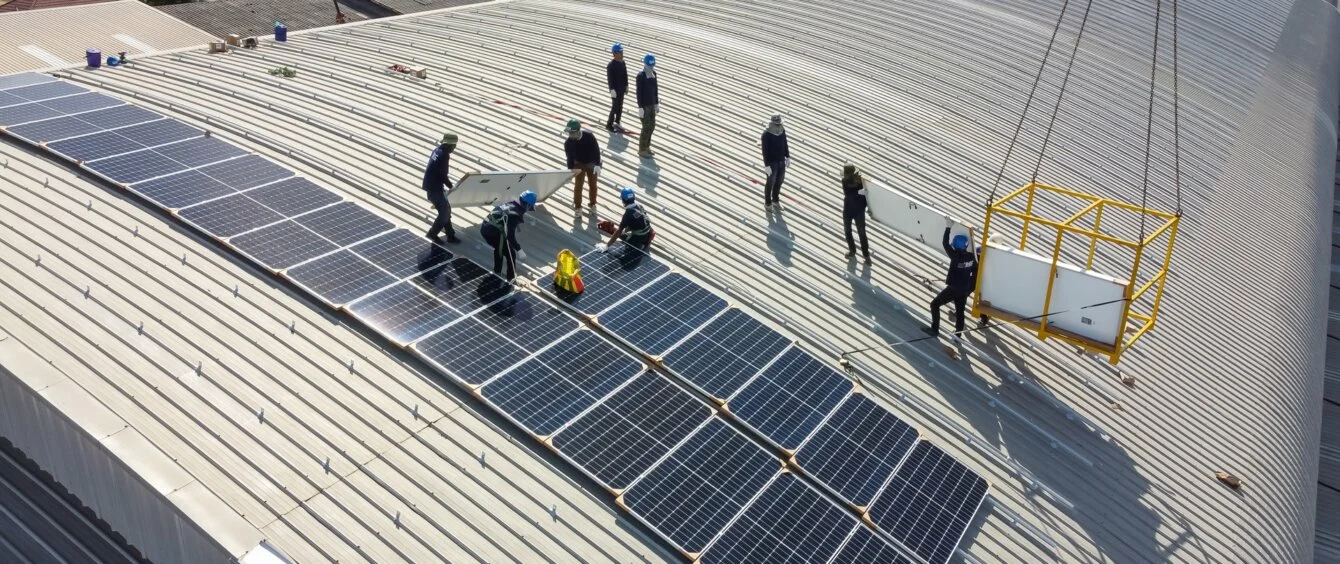SolarPower Europe (SPE), the European solar industry association, has issued the third edition of its report, entitled EU Solar Jobs Report 2023. This publication includes the association’s forecast of over a million full-time workers in Europe’s solar sector by 2025. SPE further believes that as many as 1.2 million full-time jobs might be created by 2027 if the trend towards solar power usage persists.
Germany will take the lead
Moreover, the report reveals that the EU solar sector expanded by 39 percent to 648,000 full time equivalents in 2022 from 466,000 in 2021. Poland had the biggest share of full-time employees by the end of the year, approaching 150,000. Runners up were Spain (103,000) and Germany (96,000), which has the greatest demand. The authors prognosticate over 210,000 full-time positions in Germany by 2027.
A full time equivalent (FTE) is a unit of measurement indicating the workload of an employee that enables comparisons among workloads with various working hours. It is based on a standard work week, which is usually 40 hours. An FTE of 1.0 is equivalent to the workload of a full-time employee. Therefore, an FTE of 0.5 indicates that a person has worked half of the normal working hours. Actual headcount is almost always higher than the FTE.
Installation accounts for the lion’s share, or 84 percent, of the solar labour force. Some eight percent of the positions are accounted for by operation and maintenance, with seven percent going to manufacturing and a small share of one percent to disposal and recycling.
Concern over shortage of skilled labour
SPE finds that a substantial number of skilled workers must be mobilised without neglecting training standards in order to cater to the rampant rise in demand driven by ambitious expansion goals. According to the report, the most needed professions are fitters, electricians as well as planning and electrical engineers. In addition, the solar sector has to compete with other sectors such as energy supply, car manufacturing and IT to recruit suitable personnel – above all in technical professions.
Top 7 EU countries: solar employees in 2022
Source: SPEThe sector is concerned that there may not be enough skilled workers to achieve the planned growth. In 2022, more jobs were created in operation and maintenance than in production. The experts believe this is proof of PV installation outgrowing local value-added chains.
Therefore, the study recommends seven political ways that Europe can recruit the skilled labour required in the solar industry.
National qualification status surveys
SPE suggests that governments work together to collect information on professions. This data should be updated regularly and made easily accessible to all member states. In this way, a European action plan for expanding skillsets could be created.
Communication and educational campaigns
According to SPE, education systems must be reformed by introducing new curricula, providing teachers and instructors with advanced training, and stepping up cooperation with companies, with a view to grooming skilled workers to implement the energy transition. In addition, the public should be kept abreast of these opportunities via information campaigns, job fairs as well as collaboration with schools and businesses.
Expert training for key professions
Increasing the number of installations requires swift and purpose-designed training of electricians and fitters. This could be achieved for instance by including PV learning modules in electrician and roofer training programmes.
Reskilling and advanced training
SPE finds that suitable reskilling schemes should be developed and private retraining programmes should be supported through state subsidies. Employees should be given unfettered access to appropriate advanced training offerings in order to keep up with technological progress in the solar industry.
Combining work projects
Subsidies can contribute to lowering building renovation costs. One example mentioned in the report is coupling asbestos removal with solar panel installation. Furthermore, citizens and home owners should be informed of the advantages, while planning and local authorities establish the framework conditions for integrated renovation.
Recognition of qualifications across borders
Governments must ensure mutual recognition of qualifications for electricians and installers. The EU should develop a uniform certification standard and facilitate posting workers across borders.
Adjustment to immigration policies
SPE proposes that entry and legal immigration of workers from third countries be facilitated. Talent partnerships and the EU Talent Pool would be options.
SPE and the industry thus propose that policymakers focus not only on creating jobs, but also on the type and quality of qualifications offered. They assert that it is challenging to identify precisely where deficits exist and to ensure that all solar workers possess the necessary skills.
